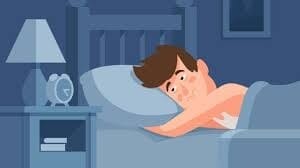Are you tossing and turning at night? Are you getting frustrated that it seems like you’re up every hour or so and only getting something resembling more of a nap than a restful night’s sleep? You are not alone. According to various resources, roughly 25–35 percent of Americans struggle to get quality sleep with some form of insomnia.
There are many contributing factors to restless sleep. Some medical reasons include a diagnosis of insomnia or sleep apnea by a physician, other medical issues that can consist of sleeplessness as a symptom, and taking medications that can cause restlessness at night or induce sleepiness during the day, leading to insomnia at night.
However, we unknowingly bring some not-so-good sleep hygiene habits onto ourselves, such as checking emails and social media before bedtime, eating too close, or not sticking to a consistent sleep schedule.
The amount of money spent yearly on over-the-counter and prescription sleep aids is staggering: approximately 30 billion dollars. This number is expected to grow as more people become desperate for sleep.
So, what can you do to get better-quality sleep without sleep aids?
Here is a quick round-up of some of the top natural ways to get better sleep and improve your sleep hygiene:
Turn off the TV and set down your phone for at least an hour before bed: Science-based research has shown that avoiding light from electronics before bedtime can significantly improve a night’s rest. That means no checking your Facebook or Twitter while in bed. And try to avoid falling asleep with the TV on. Setting a sleep timer may be a helpful reminder!
Forgo the Afternoon Nap: Although tempting, especially when you didn’t get much sleep the night before, naps can affect the amount and quality of sleep you will get the next night. If you need to squeeze in a few winks, limit yourself to a 20-minute catnap. You’ll wake up refreshed, but you should still be able to sleep through the night.
Try to stick to a consistent schedule as best you can: It might be tough to set a strict bedtime, but if you maintain a pretty regular schedule throughout the week, follow it on the weekends, too. You can’t technically catch up on sleep, but you can ensure better sleep regularly.
Pay attention to your diet: Caffeine and sugar in the afternoons or evenings can affect your ability to fall and stay asleep throughout the night. Try to limit your intake when you’ll have coffee or a sweet treat earlier in the day.
Try a soothing bath and some deep stretching or yoga before bedtime: Implementing relaxing and gentle activities before bed can help you unwind and destress from the day and set you up nicely for some much-needed deep sleep. Add some aromatherapy to your bath, such as a few drops of lavender essential oil, and see for yourself!





